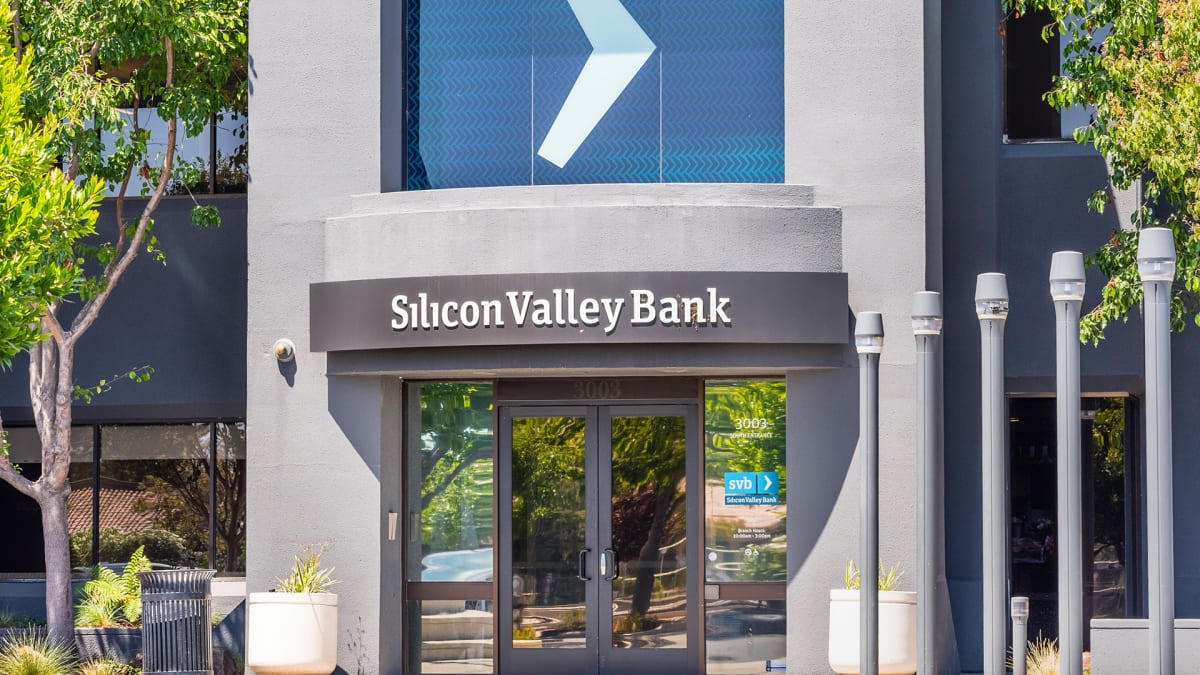
SVB Financial Group (SIVB), the parent company of Silicon Valley Bank, has put itself and its subsidiaries up for sale.
The parent company, whose stock will be delisted by the Nasdaq, is selling its subsidiaries, SVB Capital and SVB Securities, plus additional assets and investments.
SVB Securities operates as its investment banking division while SVB Capital serves as a venture capital and private credit fund, and SVB Securities is the investment banking business.
DON'T MISS: SVB Collapse: the CEO and Other Top Executives Hit by First Lawsuit
The FDIC closed its banking business, Silicon Valley Bank, on March 10. The FDIC and the Federal Reserve said on March 12 it would ensure that all depositors will receive their money even the ones that had balances over the $250,000 insured threshold.
SVB’s failure is the second-largest of a bank in U.S. history and has shaken many investors. It was the result of a bank run, caused by the firm’s announcement that it failed to raise the additional capital to increase liquidity.
Silicon Valley Bank made investments into long-dated government securities, including Treasuries. The sale of them led to a $1.8 billion loss and the California bank attempted to raise $2.25 billion in capital by issuing new common and convertible preferred shares to cover the shortfall.
Get exclusive access to portfolio managers and their proven investing strategies with Real Money Pro. Get started now.
Depositors made a run on the bank, withdrawing their cash and transferring it into other banks last week.
The company owns $3 billion of funded debt held by the holding company, which is not guaranteed by the subsidiaries.
The Federal Reserve Board said on March 13 that Vice Chair for Supervision Michael Barr will lead a review of the collapse of Silicon Valley Bank.
Who Will Buy the Loans?
The $6.7 billion in "investor dependent" loans to venture-backed startups are the "ones that are difficult for national banks to acquire," Todd Baker, a senior fellow at the Richman Center for Business, Law and Public Policy at Columbia University in New York and managing principal at Broadmoor Consulting, wrote in a LinkedIn post.
But these loans are critical to the parent company, including the global fund banking portfolio of $41.3 billion which is by far the biggest segment, followed by the $10.5 billion private bank portfolio, he wrote.
The company also provided loans to the wine industry in California and holds $1.2 billion in loans.
The FDIC faces several challenges because the subsidiaries are "disparate lending businesses," but "are all deeply intertwined," Baker wrote.
While a franchise buyer would find them to be of high value, their worth is "questionable" to a piecemeal buyer.
"And if a buyer can't" do "the earliest stage 'investor dependent' loans, can it hold on to the rest of the business?" he wrote.
A SVB executive, Chris Stedman, who is head of technology in corporate banking at Silicon Valley Bank, attempted to reassure its customers on March 14 in a LinkedIn post.
He said the bank is still funding loans and processing payments "under tremendous volumes."
Stedman asked that SVB's customers keep deposits with the new bridge bank that is called Silicon Valley Bank N.A.
"We realize the banking world has changed and doing all of your business with us is unlikely, however, we ask that you maintain your primary depository and operating business with us," he wrote.
Tim Mayopoulos, a former CEO of Fannie Mae, was appointed as the bank's new CEO on March 13.
In his letter to customers, he discussed how he worked during the Great Recession in 2008.
"I look forward to getting to know the clients of Silicon Valley Bank...I also come to this role with experience in these kinds of situations. I was part of the new leadership team that joined Fannie Mae in the wake of the financial crisis in 2008-09, and I served as the CEO of Fannie Mae from 2012-18,
Potential Bidders for SVB Financial
Suitors for the parent company include PNC and JPMorgan Chase, sources told Axios on March 13. But a PNC spokesperson later told Axios that it was not bidding on the parent company's assets, stating, "PNC is not in talks to acquire SVB Financial or Silicon Valley Bank."
Other potential bidders include Morgan Stanley and Apollo Global Management, the sources told Axios.
Apollo is likely to focus on either buying parts of the company or providing loans for a deal, the article said.
But on Tuesday, Apollo announced a leveraged buyout deal to acquire Univar Solutions (UNVR), a chemical company, for $8.1 billion, including debt.







